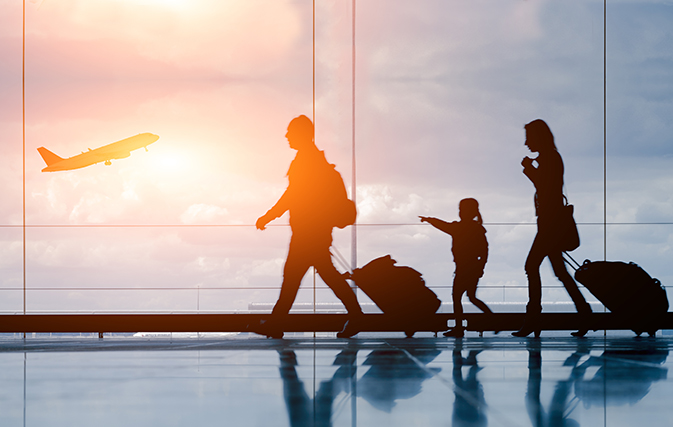GENEVA — The health and safety of a country’s citizens are always the top priority but “too many governments are fighting a global pandemic in isolation with a view that closing borders is the only solution,” says IATA’s Director General and CEO, Alexandre de Juniac.
“It’s time for governments to work together to implement measures that will enable economic and social life to resume, while controlling the spread of the virus,” he said.
De Juniac made his comments as IATA sounded the alarm on the continuing deterioration of the airline industry amid the pandemic.
According to IATA’s latest figures, total July 2020 traffic was 79.8% below 2019 levels. International traffic in July 2020 was 91.9% below 2019 levels.
IATA is urging governments to re-establish global connectivity by re-opening borders.
There is deep industry frustration, says IATA, as government policies such as closed borders, travel restrictions and quarantines “continue to annihilate travel demand.”
In what’s normally the peak summer travel season for the northern hemisphere, in the May-June period, four in five potential travelers stayed home, based on comparisons with the year-ago period.
IATA says governments must grasp the seriousness of the crisis facing the airline industry and its consequences for their citizens, focus their attention on three key issues: re-opening borders; continuing relief measures; and global leadership.
“Airlines have been largely grounded for a half-year. And the situation is not improving. In fact, in many cases it is going in the wrong direction. We see governments replacing border closures with quarantine for air travellers. Neither will restore travel or jobs,” says de Juniac.
“Worse, governments are changing the entry requirements with little notice to travellers or coordination with their trading partners. This uncertainty destroys demand. Ten percent of the global economy is sustained by travel and tourism; governments need to do better to re-start it,” he added.
De Juniac’s comments underline the financial impact as well. “No government wants to import COVID-19. Equally, no government should want to see the economic hardships and associated health impacts of mass unemployment.”
He argues that “successfully getting through this crisis requires careful risk-management with effective measures. If government policies focus on enabling a safe re-start, aviation is well-prepared to deliver. Risk-management is a well-developed discipline that airlines rely on to keep travel safe and secure.”
IATA says governments must step up (or continue) with financial relief for the airline industry, as airlines continue to lose billions of dollars.
“Many airlines will not have the financial means to survive an indefinite shutdown that, for many, already exceeds a half-year,” he says. “In these extraordinary times, governments will need to continue with financial and other relief measures to the greatest extent possible. It’s a solid investment in the recovery because each airline job saved supports 24 in the broader economy. And a functioning airline industry will be a critical enabler for economies to regain their full power.”
Relief measures must come both in the form of financial relief, as airlines face an industry loss of $84.3 billion this year, and regulatory relief, i.e. a global waiver on the ‘use-it-or-lose-it’ 80-20 slot rule for airport slots.
He notes that while many governments, including China, Brazil, Mexico, Singapore, Australia and New Zealand, have granted waivers for the winter 2020 season, the European Commission is under-estimating the severity of the crisis.
“The EC has stated that traffic will be restored to between 75% and 85% of February 2020 levels (pre-COVID-19 in most markets) for the winter season. This is far more optimistic than industry scenarios,” says de Juniac.
“The European Commission’s delay in granting a full-season waiver of the 80-20 slot rule for the Northern Hemisphere winter season is bad for everyone,” he adds.
De Juniac also points out that while governments have cooperated to set the guidelines for a safe re-start of aviation, “they have not cooperated to actually make a re-start happen. That’s why 90% of international flying has stopped. The demand is there. When borders open without quarantine, people fly. But there is too much uncertainty in how governments are managing the situation for passengers to re-build the confidence to travel.”
De Juniac says that “what is killing aviation is the fact that governments are not managing the risks of opening borders. Instead, they are keeping global mobility effectively in lockdown. And if this continues, the damage to global connectivity could become irreparable which will generate its own severe consequences for economies and public health.
“The global protocols for safely re-starting aviation are agreed and no industry is as experienced in successfully implementing global safety programs as aviation. But we need governments to take on the leadership to manage risks and adopt a mindset of not being defeated by this virus. Then, with testing, technology, science and determination we can re-open borders and get the world moving again,” said de Juniac.

